‘The 100’s Shocking Character Death Felt Wrong — Here’s Why
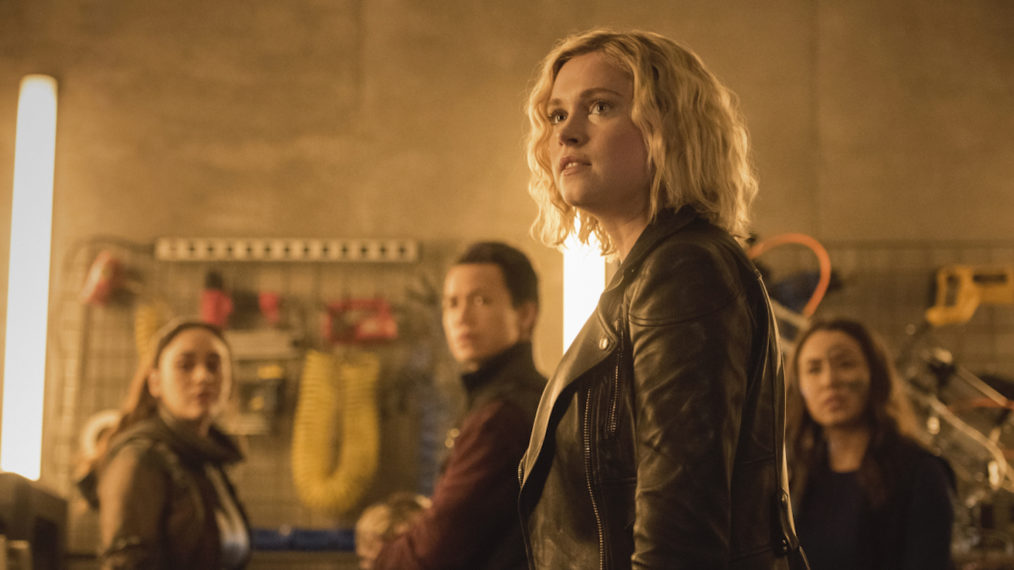
Opinion
[WARNING: The following contains MAJOR spoilers for The 100 Season 7 Episode 13, “Blood Giant.”]
For a few seconds after The 100’s latest episode aired, I—and many viewers, I’d imagine—was left staring blankly at my TV screen, wondering what on Earth (or rather, Sanctum) had just happened. And if any of it was real.
To be fair, this is not a show known for being happy and fluffy. Quite the opposite. Characters, many of them beloved by fans, go out in horrific and tragic ways. But even if their deaths didn’t fit their characters—i.e. Lexa (Alycia Debnam-Carey) and that infamous stray bullet—their ends felt significant.
Bellamy Blake’s (Bob Morley) did not. It wasn’t so much that Bellamy died, though, as how he died… and what it means for the show, its relationships and the story it’s been telling.
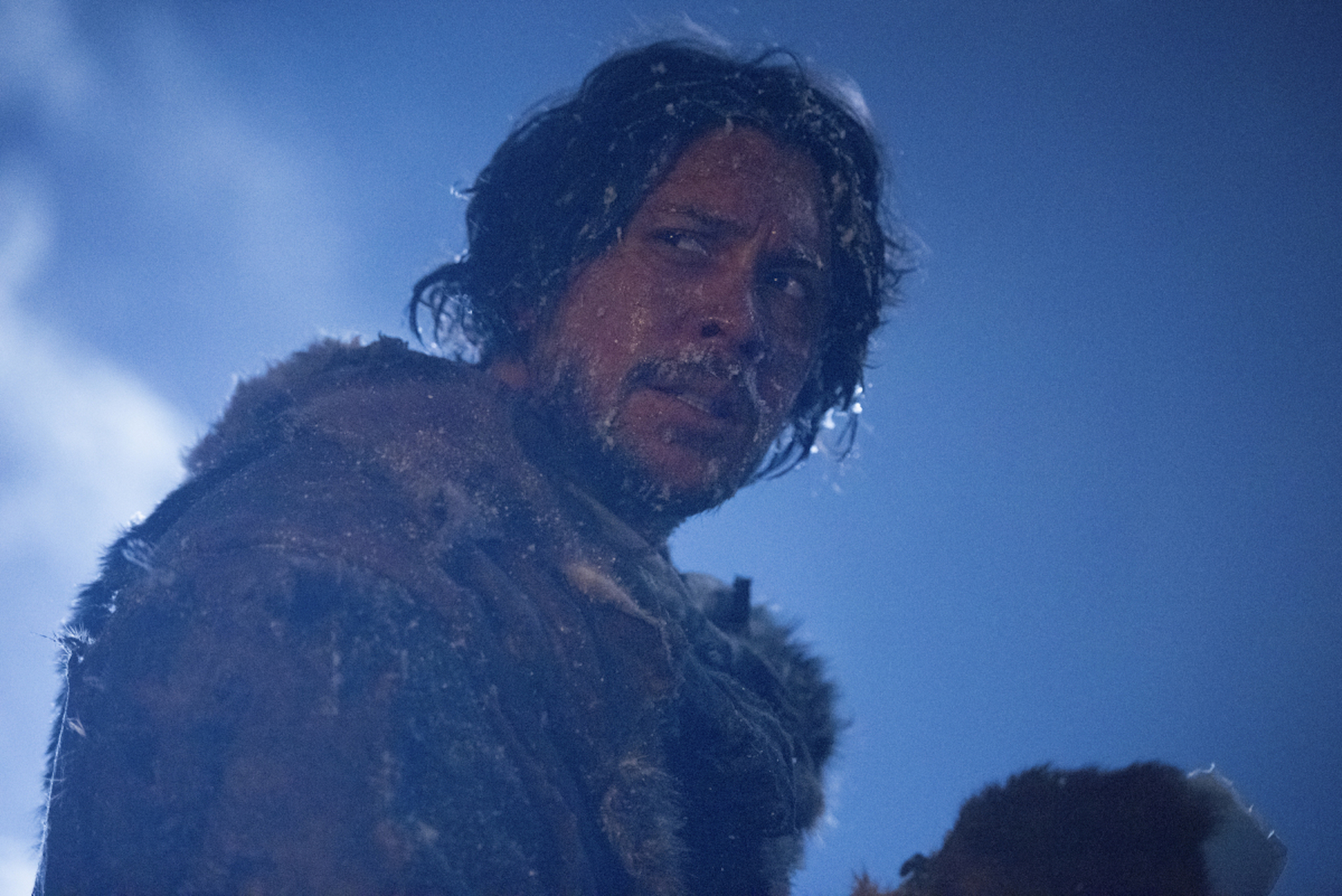
(Dean Buscher/The CW)
Complicated Thematic Significance
So, let’s say Bellamy was right. Transcendence is real, and he really did see evidence of it in the cave, and Clarke and her friends come to realize they should’ve listened to him. That would posthumously give him a redemption arc many thought he’d have before his death, but it’d still feel wrong—after all, the character in question isn’t around to be redeemed, unless we’re given some kind of “afterlife” sequence.
Verifying transcendence also comes with another problem in that it proves not only Bellamy right, but also Cadogan (John Pyper-Ferguson). There’s something off-putting about the idea of this show proving a narcissistic cult leader correct in the end, especially after he left his wife to die in the backdoor prequel pilot and burned a woman at the stake.
And yet, for Bellamy to “earn” redemption from the grave or for his death to be meaningful in a way that saves his character arc, Cadogan has to be at least partially onto something with his blathering about “saving everyone.” Otherwise, Bellamy’s death—or at least, his convictions behind it—were about as meaningless to the overall plot as ALIE uploading herself to the remains of The Ark in Season 3.
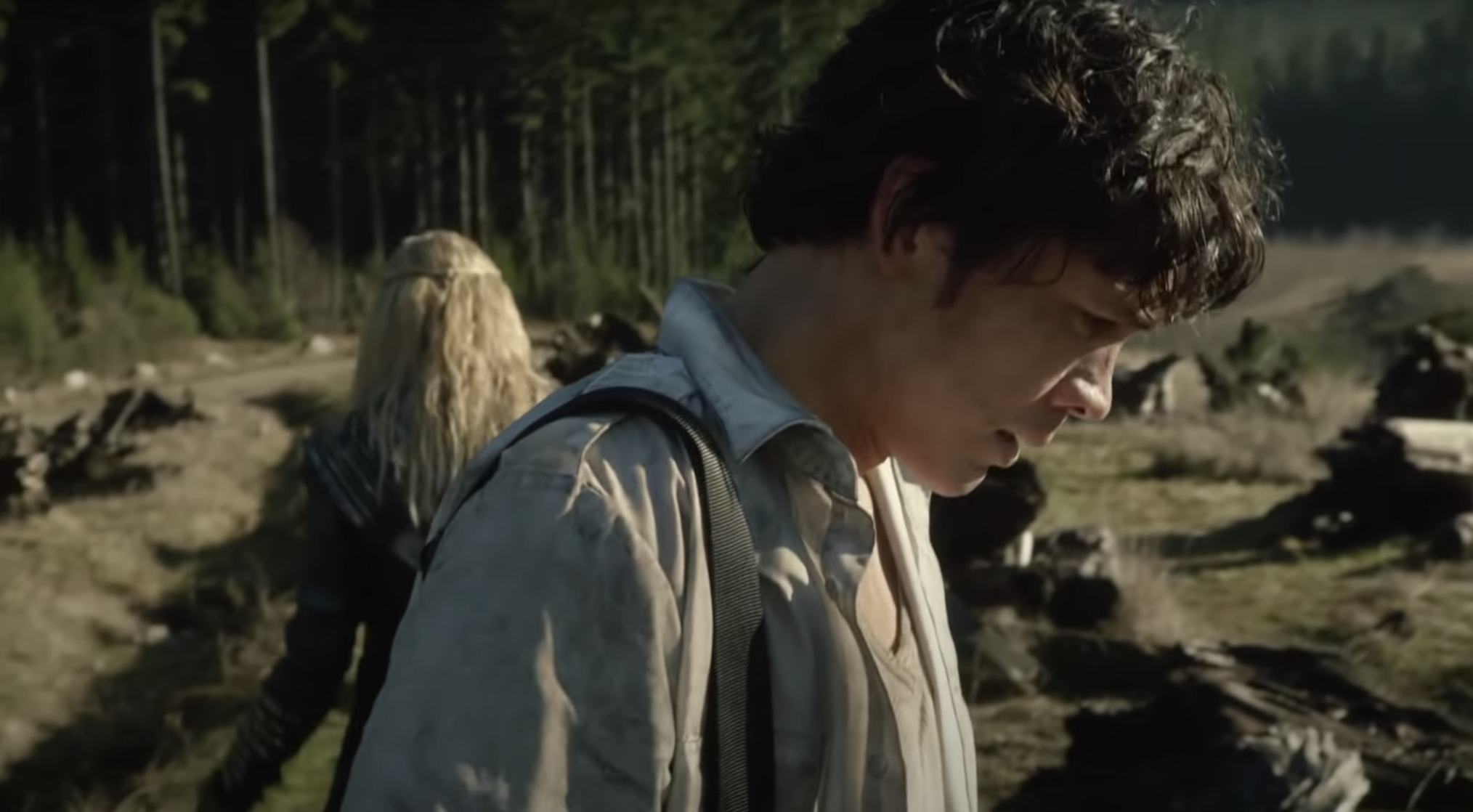
(The CW)
No Overall Ties to the Show’s Themes or to Bellamy’s Character
Say what you will about Lexa or Lincoln (Ricky Whittle) or Jasper’s (Devon Bostick) ends: They did, when all was said and done, tie to The 100’s greater messages. Lexa’s realization that life should be about more than just surviving has long been a point this show has driven home. Lincoln’s sacrifice offered his powerful last words: “may we meet again,” yet another show slogan, in Trigedasleng, the show’s grounder language. Jasper’s death offered a controversial, heartbreaking message: that when post-apocalyptic life is only pain and surviving and torture, death is the option that, for better or worse, some who abhor extreme violence might choose.
Other characters have died in ways that felt poetic and true to their natures. Monty (Chris Larkin) and Harper (Chelsey Reist) chose to stay awake when everyone else was in cryo-sleep and have a full, peaceful life; that tracked with Monty’s continual desire to break the cycle of violence in which he and his friends had become trapped. Kane (Henry Ian Cusick) died mostly for his morals after realizing he was inhabiting a different body under horrifically false pretenses, which, while jarring, was a very Kane thing to do. It made sense, given how motivated he’d always been to do the right thing.
What does Bellamy’s death say? That sometimes, cult leaders are right? That turning one’s back on one’s family and friends, even if they’ve been your motivation throughout your life, is acceptable if you’ve seen “the light?” Granted, we still have three episodes left, so it’s possible the significance of his final moments is yet to come. But as it stands, Bellamy’s death rings of shock value rather than narrative weight. He didn’t even have meaningful last words, like Lexa, Lincoln, or Jasper, and he died a villain to those he loved and sacrificed for, again and again, throughout the show. That stings.

(The CW)
It Diminishes the Show’s Rewatch Value
The closest parallel to draw here might be to Game of Thrones, which did something very similar with a character that had much in common with Bellamy: Daenerys Targaryen (Emilia Clarke). Dany’s rapid descent from benevolent leader to murderous tyrant was explained in the span of two episodes, while her time on the “good side” lasted seven whole seasons; and yet, now it’s hard to see her as anything but the “Mad Queen” who burned the population of King’s Landing alive. Since the narrative spends so much time setting her up as a hero, it’s nearly impossible to watch the series over again. We’re not rooting for her on the second time through because we know how her story ends and who she becomes, but the show wants us to cheer her on in those early seasons. That creates a disconnect.
The same might be said for Bellamy’s death. The 100 spent plenty of time setting Bellamy up as the “good guy,” although he did do bad things—but they were things he regretted deeply and wanted to atone for. His journey from arrogant anarchist to respectable leader is one of the show’s most engrossing arcs aside from John Murphy (Richard Harmon), but in the end, it feels meaningless because his arc this season was rushed and his death had few ties to the narrative themes of the show and his character. Will we feel as invested in his inner turmoil, his triumphs and heartbreaks, when we know his story ends with him on “the dark side” and a bullet in his heart, courtesy of his best friend? No. And speaking of Clarke…
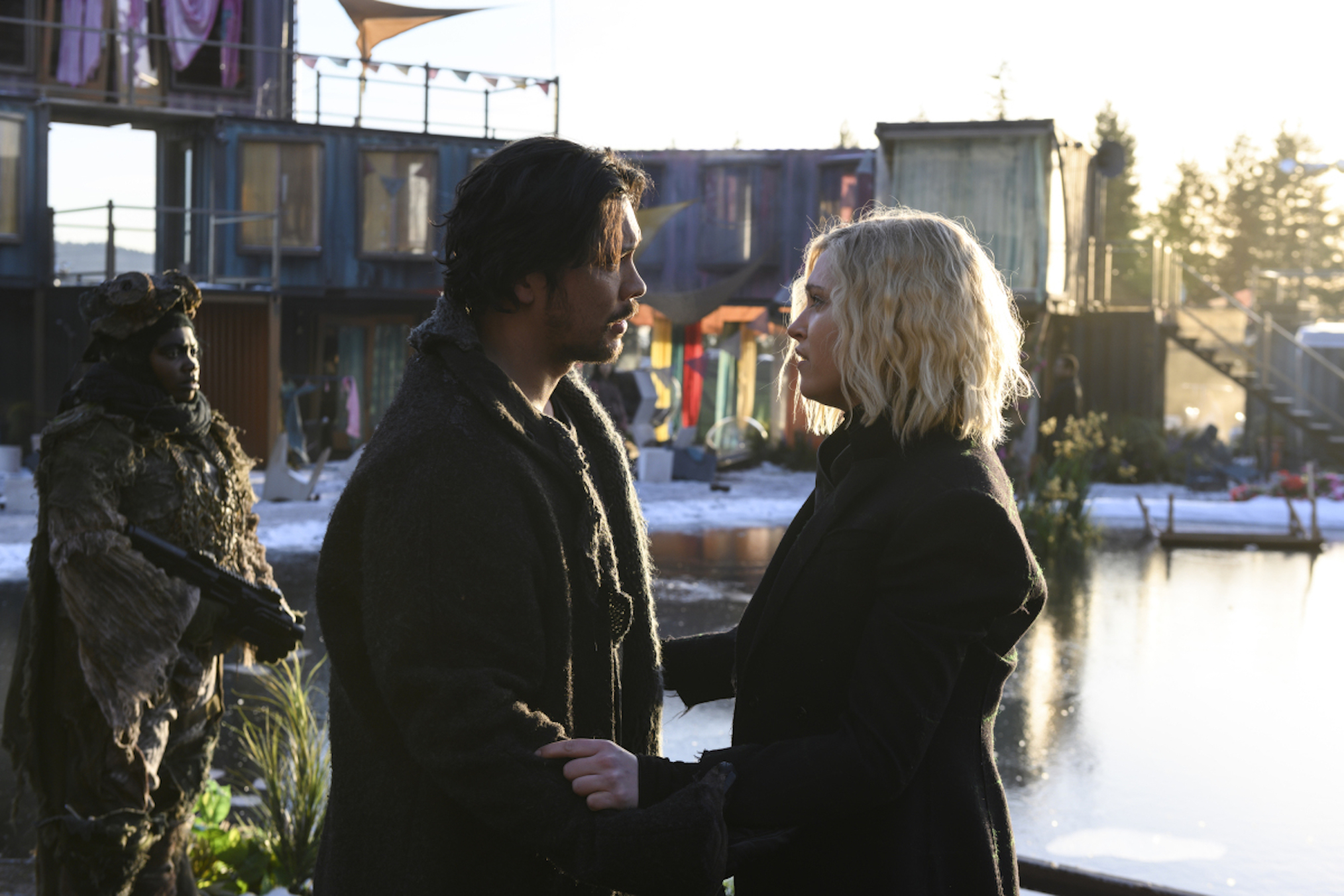
(Diyah Pera/The CW)
It Taints One of the Show’s Central Relationships
Whether or not you wanted to see them end up together romantically, there’s no denying that Bellamy and Clarke’s relationship was one of the pillars holding The 100 upright. No matter how many times they betrayed each other, fought, ended up on opposite sides of a conflict, or left each other to die, they always gravitated back into the other person’s orbit with an offer of forgiveness. “Soulmate”—platonic, romantic, however you saw it—seemed a fitting word for them.
Seeing them go from enemies to friends to family throughout the seasons is another of The 100’s key plot points, and it’s hard, now, to watch their emotional scenes as the narrative wants viewers to see them. What was the point of “together” as they irradiated Mount Weather? What was the point of Bellamy bringing Clarke back to life, and the utterance of the phrase, “the head and the heart?” What was the point of Clarke calling him every day for years, or saying she’d never forget that they were family again?
Sure, killing him to save Madi (Lola Flanery) wasn’t out of character for Wanheda; she’d left Bellamy to die before, after he played a key role in putting The Flame in her daughter’s head. But that was a temporary plot point their relationship overcame, and she clearly regretted it. This is permanent. Knowing one of the show’s most integral partnerships ends with one half putting a bullet in the other half’s chest removes the unique magnetism and charm from said partnership—one that had been meticulously built up over 96 episodes.
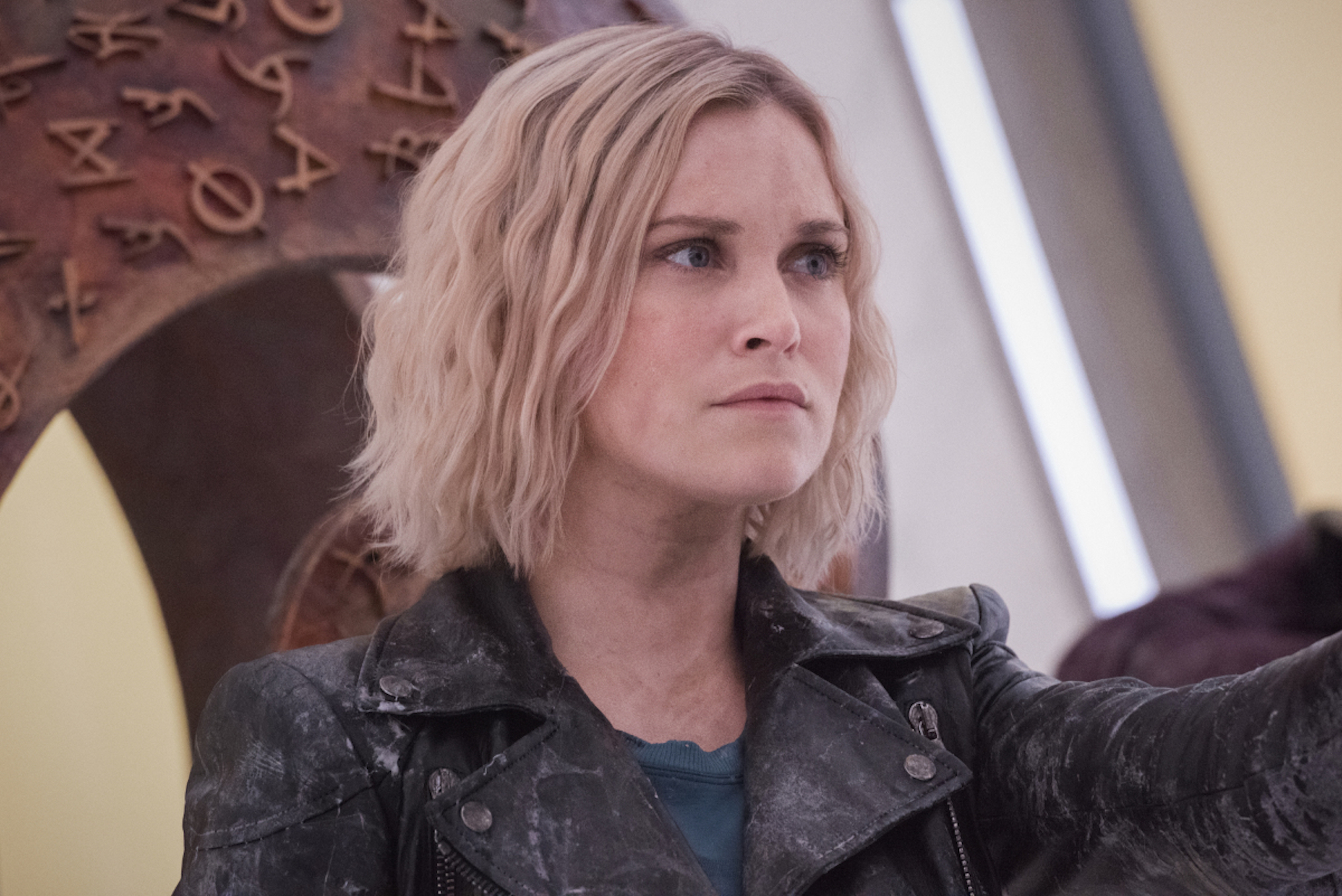
(Dean Buscher/The CW)
Where Does The 100 Go From Here?
Assuming Bellamy’s dead-dead and Clarke wasn’t suffering some weird side effects from the Red Sun toxin—or that he’s not spirited back to Bardo for an emergency medical procedure—The 100 has complicated its character relationships and themes in an irreversible and unpleasant way as it moves into its final episodes.
It’ll be intriguing to see whether Echo (Tasya Teles) and Octavia (Marie Avgeropoulos) react with anger or acceptance once the truth about what Clarke did is revealed. Octavia, likely the latter, since she had that conversation about “understanding Clarke” earlier this season as a result of her time spent caring for Hope. Echo’s more of a wild card, but given how Bellamy basically broke things off with her before his death, maybe she’ll fall under the “acceptance” category, too. Either that, or she’ll kill Clarke, or Clarke will kill her and then die from wounds sustained fighting Echo. Or, Clarke’s already taking the Final Test and has been for the whole show, and in the end, she’ll pass—but she’ll choose to go back to the beginning and “do better,” thus bringing significance to the infinity symbol the show keeps returning to: an endless loop of violence and yearning to overcome humanity’s inescapable darkness. It’s hard to say what the endgame is.
Personally, I doubt Clarke survives the show, whether or not one of Bellamy’s loved ones ends her life. “The head and the heart” was a strong Bellamy-Clarke theme throughout the show, and how does the head survive when the heart stops beating? It doesn’t. In the end, it’s not that Bellamy died—it’s the fact that he died this way, with his final moments feeling out of character and abrupt. His end felt like a footnote in a season more uneven than any that preceded it. Here’s hoping The 100 can find a way to “do better” by sticking the landing and honoring his character.
The 100, Wednesdays, 8/7c, The CW
From TV Guide Magazine
Behind the Scenes With Gordon Ramsay: 20 Years of Cooking Up TV Hits
The celebrity chef reflects on redefining culinary television and his fiery journey Hell’s Kitchen to Secret Service. Read the story now on TV Insider.












